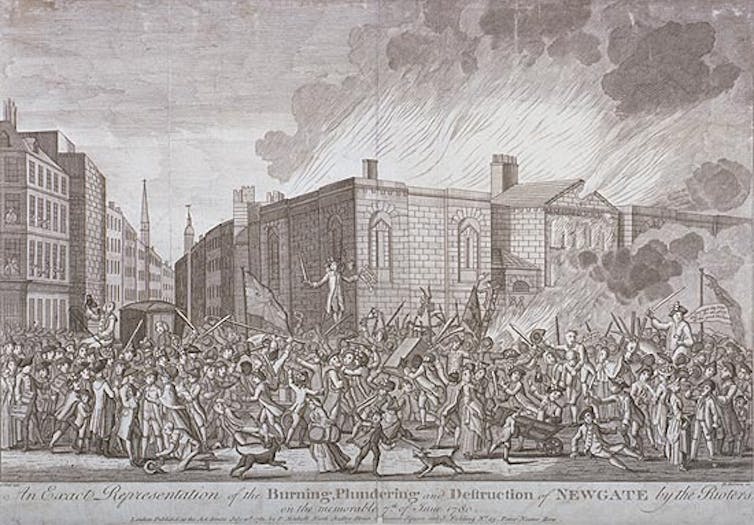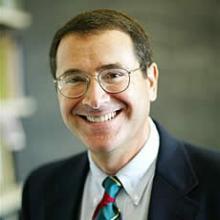America looks hopeless – a lot like the 'mother country' once did
A decade ago, as the scale of the disaster in Iraq began to sink in, American historians often compared the United States to ancient Rome. Both seemed to suffer from an imperial disease whose symptoms began with overreach and ended in collapse.
This is a useful way for Americans like me to consider our troubles abroad. But when it comes to our democracy’s problems at home, the closer parallel is with 18th century Britain, the “mother country” from which the United States broke away in 1776.
Britons of that time enjoyed many liberties unknown to their favourite bogeymen, the French. These freedoms had many roots, including the Magna Carta of 1215, the Bill of Rights from 1689 and various parts of English common law. Most Britons saw their country as God’s favourite and thanked their “Constitution” — a general term for established forms of law and government — for their rising glory.
Yet for all the liberties it tolerated, that Constitution’s real goal was to shield wealth and privilege from popular demands.
Rejecting aristocracy
In the House of Lords, the privileged group was the aristocracy that still owned about 80 per cent of all the arable land in England. In the House of Commons, the favoured ones were rising merchants, bankers and industrialists. Together these old and new elites ran the show.
For example, British law treated labour organizations as “conspiracies” while respecting the fortunes that stockholders made as untouchable. A brutal criminal code complemented a draconian view of poverty.
Strict suffrage laws and rotten boroughs insulated real power from the political circus, not to mention the angry crowds that rose up against everything from low wages to high bread prices to anti-poaching laws.
In 1780, a crowd of perhaps 60,000 rampaged through London, at first targeting Catholics but quickly moving on to the Bank of England and the notorious Newgate Prison, where they said their “honest comrades” were held. Once the storm passed, though, nothing changed.

By then, the American revolutionaries had given up on the British model. They dreamed of a republic —literally, “the public thing” — where the common good overruled selfish demands and private interests. After the American Revolution, the U.S. Constitution of 1787 seemed to fulfil these hopes by rejecting aristocratic titles and naming “the People” as the basis of authority.
Yet this same Constitution protected both slave-holders and bond-owners. It prohibited all kinds of popular interventions into the economy. And it arranged the federal government so that the general will of the population was divided, filtered and ultimately restrained.
In this sense, it simply updated British constitutional forms for American conditions, in which land was plentiful, labour was scarce and white skin rather than high birth conferred status.
Creative transformations rolled back
During periods of democratic renewal, such as Reconstruction, the New Deal and the Civil Rights era, American politics pushed the Constitution beyond its original intentions. In these creative moments, active citizens shaped a more just society.
But over the last 50 years, another alliance of old and new has taken up arms (sometimes literally) behind constitutional bulwarks, rolling back much of that progress.
This alliance includes white voters who keep their traditional supremacy through gerrymandered districts, restrictive voting laws and mass incarceration of non-white people.
It also includes corporate interests that halt efforts to protect workers and the environment, to say nothing of sick, poor and elderly Americans. These plutocrats not only decide elections with their campaign contributions but also write legislation through their lobbyists.
As a now-famous study from 2014 empirically shows, majority needs and wishes in the United States have virtually no impact on public policy, regardless of which celebrity-candidate wins office.
A rigid political system
In America now, just as in Britain then, most people object. They would rather have clean air and water, secure jobs and pensions and a fair distribution of wealth. They would rather not see most of their fellow citizens living one paycheque to the next, nor watch schoolchildren prepare for the next mass shooting. They would prefer to live in a good society rather than a great power.
Even if dozens of Bernie Sanders acolytes get into office, their ideas will run aground in congressional committees awash in corporate influence.
And if progressive hopes ever make it onto the books, federal courts stocked with hard-right judges will strike them down —no matter what kind of “blue wave” arrives in 2020, 2024 or indeed 2040.
In short, there is no reason to assume that under the current Constitution, the demographic and cultural changes of the past generation will fundamentally challenge Donald Trump’s America.
After all, the British Constitution of the 1700s held firm through much of the 1800s, despite the upheavals of the Industrial Revolution. It gave ground in periodic “Reform Acts” but otherwise kept democracy at bay. The people had to settle for their pride in the empire, their disdain for other countries, and their sense that, as Britons, they were at least free to start over in Canada or Australia or even the United States.
J.M. Opal, Associate Professor of History, McGill University
This article was originally published on The Conversation. Read the original article.




















